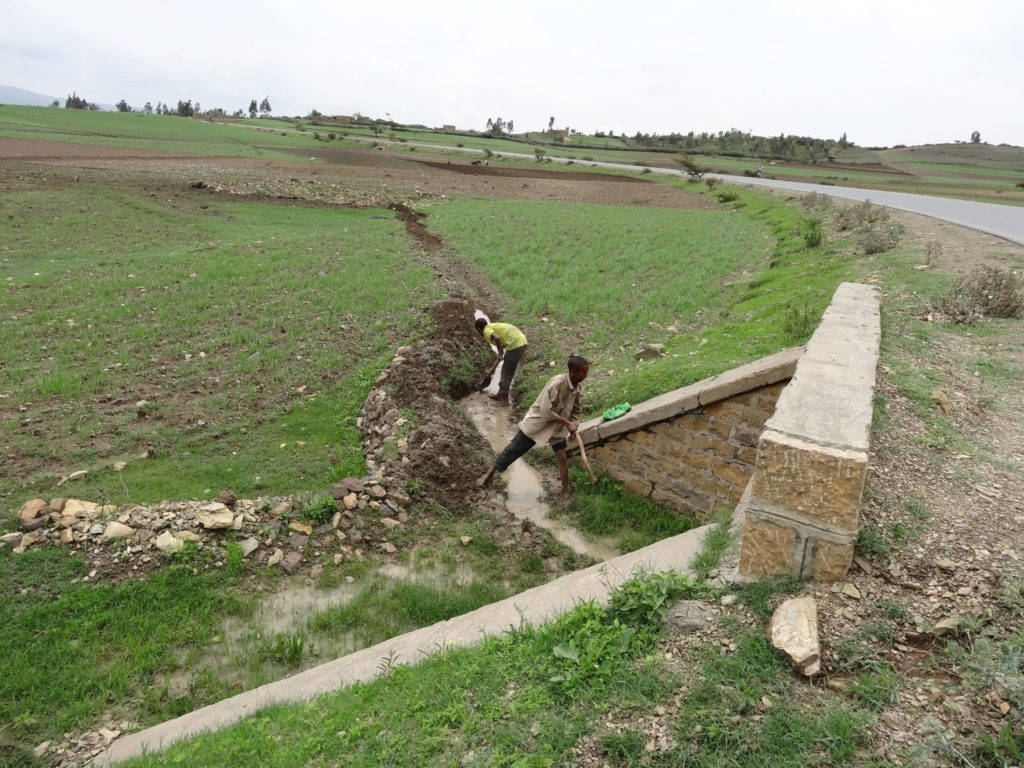Roads for Water is integrating road construction and small water infrastructure to harvest rainwater from small catchments for productive use, while reducing road damage and simplifying road maintenance. Improving road drainage design is reducing soil erosion and increasing groundwater recharge. Furthermore, using roads for resource capture can prevent dangerous and inconvenient flooding, and in some cases pave the way for sand harvest and dune management, tree planting and protection of other natural resources.
Starting as an UPGro Catalyst Project, Roads for Water is now scaling up across Ethiopia, Kenya, Bangladesh, Malawi, Uganda and elsewhere with support from the Global Resilience Partnership (USAID, Rockefeller Foundation, SIDA and the Zurich Foundation) and the World Bank. The Roads for Water Learning Alliance was established to bring researchers, implementers, policy makers, trainers, donors and other stakeholders together to share knowledge and to support roadwork for natural resource management and climate resilience. The initiative recently received the second-place prize in the Zilient 2017 Resilience Awards.
MetaMeta and Mekelle University encourage those interested to become part of the learning alliance to contact MetaMeta at marta@metameta.nl
In partnership with: MetaMeta Research / Mekelle University- UPGro / Global Resilience Partnership) USAID SIDA Rockefeller Foundation World Bank
Photo: Local communities in Ethiopia diverting water from a culvert to a percolation pond for groundwater recharge. Photo: Kifle Woldearegay/Mekelle University.

